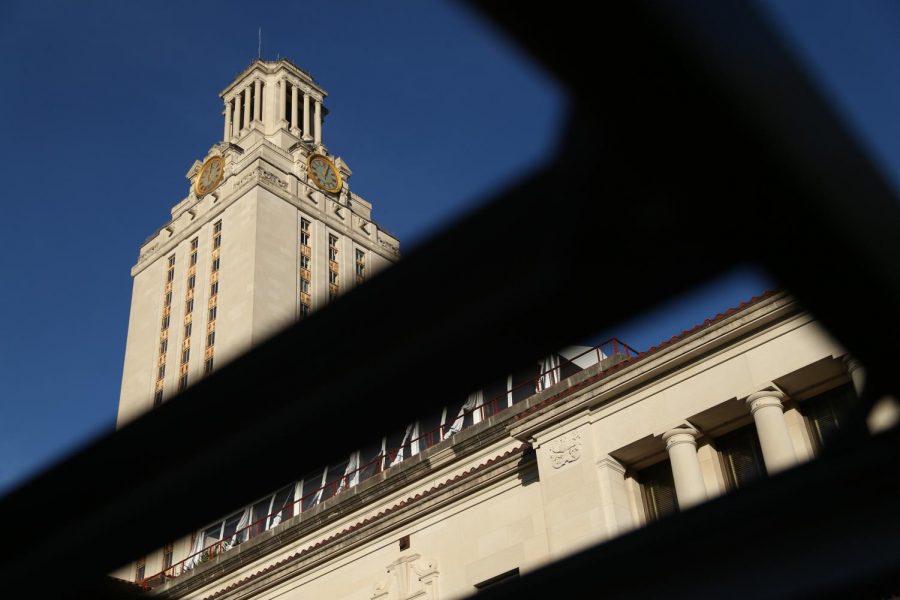Black student leaders demand UT-Austin, Hartzell, Board improve Black student conditions
March 31, 2021
The Black President’s Leadership Council, a group of Black student leaders on campus, sent a letter to the University, UT President Jay Hartzell and the UT System Board of Regents Wednesday morning with demands to improve the Black student experience. The letter asked for commitment to the actions by May 1.
The demands include:
- Increasing scholarships, financial aid and internship opportunities for Black students.
- A student activity center in East Riverside.
- Funding for departments that focus on marginalized communities through research.
- Developing affordable housing for students.
- Increasing the wages of student workers to $15 an hour and entry-level staff to $18 an hour.
- Completing the official Black UT Community demands.
The letter comes after The Eyes of Texas History Committee report was released on March 9, which the Black President’s Leadership Council called “incomplete” after history professor Alberto Martínez released a report with contrary findings on March 24. Hartzell has said since July that the song will remain as the alma mater.
The letter said the council has had multiple meetings with administrators over the past nine months and another meeting was called “last-minute” after the history committee’s report was released.
“Given that those findings are incomplete, we spent those hours being gaslit, our intelligence being disrespected, and our time being wasted,” the letter said. “Instead of listening to Black students, President Hartzell and the Board of Regents have placated all those who do not believe we belong here as equals.”
Some of the demands were first listed at a press conference Monday with students, Texas Legislative Black Caucus leaders, the Texas NAACP, Martínez and others condemning the University’s decision to keep the song.
The council called on Hartzell to follow through on his commitment made over the summer to create “a more diverse and welcoming campus,”which included a multi-million dollar investment from athletics to “recruit, attract, retain and support Black students.”
The University changed the name of the Robert Lee Moore Hall building last summer to the Physics, Math and Astronomy building and approved $1 million for recruitment and community engagement. Students called for PMA, as well as other buildings named after racist people, to be renamed.
“These gestures alone are not enough to meet the needs of Black UT students,” the letter said. “The changes that have been made are largely symbolic, and while they are important, what we demand is equitable access to opportunity for all UT students.”
University spokesperson J.B. Bird said UT has received the letter and is reviewing it and will comment after it has been reviewed. UT System spokesperson Karen Adler did not immediately respond to comment.
Brianna McBride, co-director of the Black President’s Leadership Council, said the council wants Hartzell to commit to the demands and work they’ve been doing over the past nine months with the Division of Diversity and Community Engagement.
“Our biggest thing right now is to get the University to commit to … not stand in the way of the work that we want to do with our administration that we’ve been working with,” McBride said. “We feel as though the University as a whole and the president’s office are not putting enough effort or interest in making sure that we can see those things through.”
McBride said the University put a lot of effort into the history committee’s report, and she said UT should have put as much effort into the other demands.
Publishing the letter was done to show there were more demands focused on equity for Black students and other marginalized groups other than just dealing with “The Eyes of Texas,” McBride said.
She said some of the changes the council has been advocating for, such as alternative programs for mental health calls on campus to UTPD, are being worked on. However, she said other things they’ve been working on have to be approved by Hartzell and the University.
“Being Black students on campus, we can’t just be students,” McBride said. “What the University can do is make that experience more pleasant … Let’s not make the process so difficult. Let’s not make the conversation so taxing. Let’s not put the burden on the students to see all of it through in terms of the logistical labor.”



